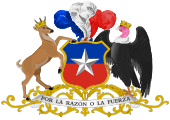The government of Argentina, within the framework of a federal system, is a presidential representative democratic republic. The President of Argentina is both head of state and head of government. Executive power is exercised by the President. Legislative power is vested in the National Congress. The Judiciary is independent from the Executive and from the Legislature, and is vested in the Supreme Court and the lower national tribunals.

The Dominican Republic is a representative democracy, where the President of the Dominican Republic functions as both the head of the government and head of the multi-party system. Executive power is exercised by the government. Legislative power is vested in the bicameral National Congress. The Judiciary is independent of the executive and the legislature.

The National Congress of Chile is the legislative branch of the government of the Republic of Chile.

Elections in Chile are held nationwide, including the presidency, parliament, regional offices, and municipal positions. Chilean citizens and foreign residents with legal residency of at least five years, who are 18 years or older on election day, are eligible to vote. Previously, voting was voluntary, but since 2023, it has become compulsory.

General elections were held in Chile on Sunday, 11 December 2005 to elect the president and members of the National Congress. None of the four presidential candidates received an absolute majority, leading to a runoff election between the top two candidates — Michelle Bachelet from the Coalition of Parties for Democracy and Sebastián Piñera from National Renewal — on Sunday, 15 January 2006. Bachelet was victorious with 53.49% of the vote. She succeeded President Ricardo Lagos on 11 March 2006, for a period of four years, after Congress reformed the Constitution in September 2005 and reduced the term from six years.

Bolivia elects on national level a head of state – the president – and a legislature. The president and the vice-president are elected for a five-year term by the people. The National Congress has two chambers. The Chamber of Deputies has 130 members, elected for a five-year term using the Additional Member System, and in the case of seven indigenous seats by usos y costumbres. The Chamber of Senators has 36 members: each of the country's nine departments returns four senators allocated proportionally.

The Dominican Republic is a unitary state with elected officials at the national and local levels. On a national level, head of state, the President, is elected directly by the people. The national legislature, the Congress of the Republic, is divided into two chambers: the Chamber of Deputies and the Senate. There are also elected offices at the local level. It is estimated that across the whole country, over four thousand offices are filled in every electoral cycle.

The Congress of the Argentine Nation is the legislative branch of the government of Argentina. Its composition is bicameral, constituted by a 72-seat Senate and a 257-seat Chamber of Deputies. The Senate, whose members are elected to six-year terms renewable by thirds each two years, consists of three representatives from each province and the federal capital. The Chamber of Deputies, whose members are elected to four-year terms, is apportioned according to population, and renews their members by a half each two years.

The Legislative Assembly forms the unicameral legislative branch of the Costa Rican government. The national congress building is located in the capital city, San José, specifically in Carmen district of the San José canton.
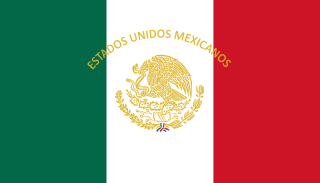
The president of Mexico, officially the president of the United Mexican States, is the head of state and head of government of Mexico. Under the Constitution of Mexico, the president heads the executive branch of the federal government and is the commander-in-chief of the Mexican Armed Forces. The current president is Andrés Manuel López Obrador, who took office on 1 December 2018.
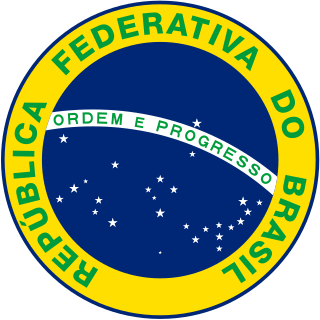
The Federal Government of Brazil is the national government of the Federative Republic of Brazil, a republic in South America divided into 26 states and a federal district. The Brazilian federal government is divided into three branches: the executive, which is headed by the President and the cabinet; the legislative, whose powers are vested by the Constitution in the National Congress; and the judiciary, whose powers are vested in nine organs, including the Supreme Federal Court and lower federal courts. The seat of the federal government is located in Brasília.
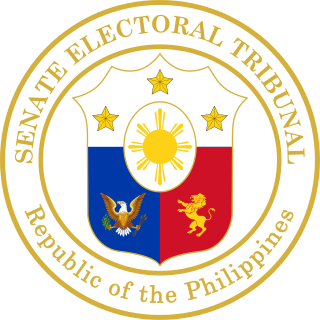
The Senate Electoral Tribunal (SET) is an electoral tribunal that decides election protests in the Senate of the Philippines. It consists of 6 senators nominated by the Senate, and 3 justices of the Supreme Court of the Philippines, who are designated by the Chief Justice. The equivalent tribunals for elections to the lower house is the House of Representatives Electoral Tribunal and to president and vice presidents is Presidential Electoral Tribunal.
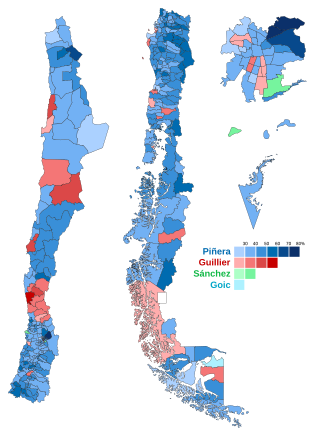
General elections were held in Chile on 19 November 2017, including presidential, parliamentary and regional elections.

The Party of the South was a Chilean regionalist political party. It existed between 1987 and 1998.

The Constitution of Costa Rica is the supreme law of Costa Rica. At the end of the 1948 Costa Rican Civil War, José Figueres Ferrer oversaw the Costa Rican Constitutional Assembly, which drafted the document. It was approved on 1949 November 7. Several older constitutions had been in effect starting from 1812, with the most recent former constitution ratified in 1871. The Costa Rican Constitution is remarkable in that in its Article 12 abolished the Costa Rican military, making it the second nation after Japan to do so by law. Another unusual clause is an amendment asserting the right to live in a healthy natural environment.

The Constitutional Court of Chile is Chile's constitutional tribunal. It is not part of the judicial branch and is functionally independent of the Congress and the President. The court is housed in the Ex Caja de Crédito Hipotecario building, which is located at 1234 Huérfanos Street in downtown Santiago.
Citizens was a Chilean political party founded in 2013, with members comprising militants and independents of the center and center-left whose beliefs did not align with New Majority or Chile Vamos. Party militants mainly came from the Christian Democratic Party and the Party for Democracy.

The National Television Council is a Chilean government agency whose function is to oversee the operation of television services.

Álvaro José Miguel Covarrubias Ortúzar was a Chilean politician and lawyer who served as President of the Senate of Chile. He also stood as an independent candidate in the Chilean presidential elections in 1871, 1876, 1881 and 1886.
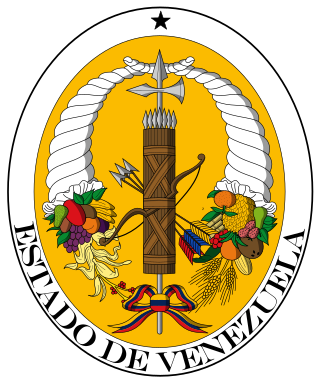
The Constitution of Venezuela of 1830 was the fourth Magna Carta in force in Venezuela from 1830 to 1857, being the second most valid Venezuelan fundamental law. Approved by the Constituent Congress of Valencia, on September 22, 1830 and promulgated by General José Antonio Páez two days later. The Constituent Congress of 1830 that sanctioned it had begun its sessions in the city of Valencia on May 6, 1830, with the attendance of 33 deputies of the 48 that had been elected in representation of the provinces of Cumaná, Barcelona, Margarita, Caracas, Carabobo, Coro, Mérida, Barinas, Apure, Barquisimeto, Guayana and Maracaibo. In March 1857 this text was repealed when the Constitution of 1857 was approved and promulgated.
